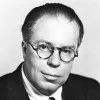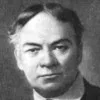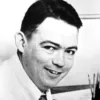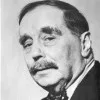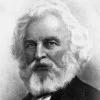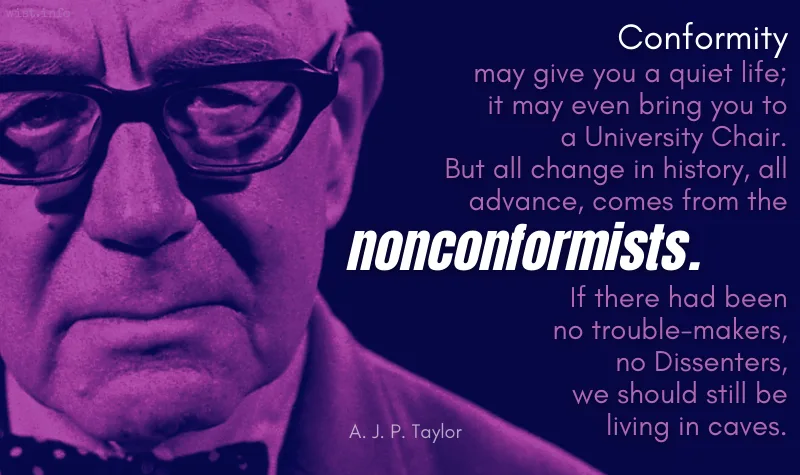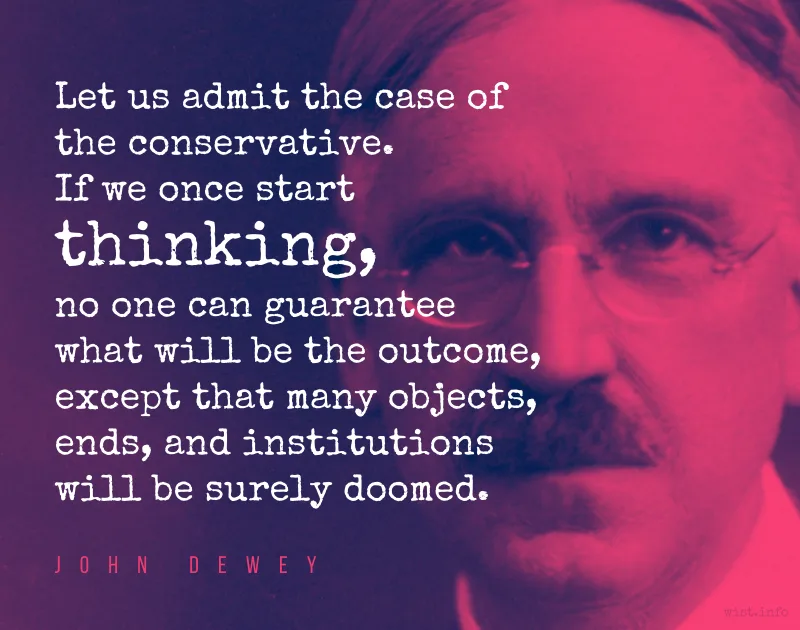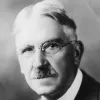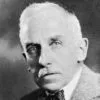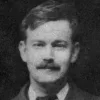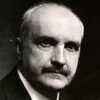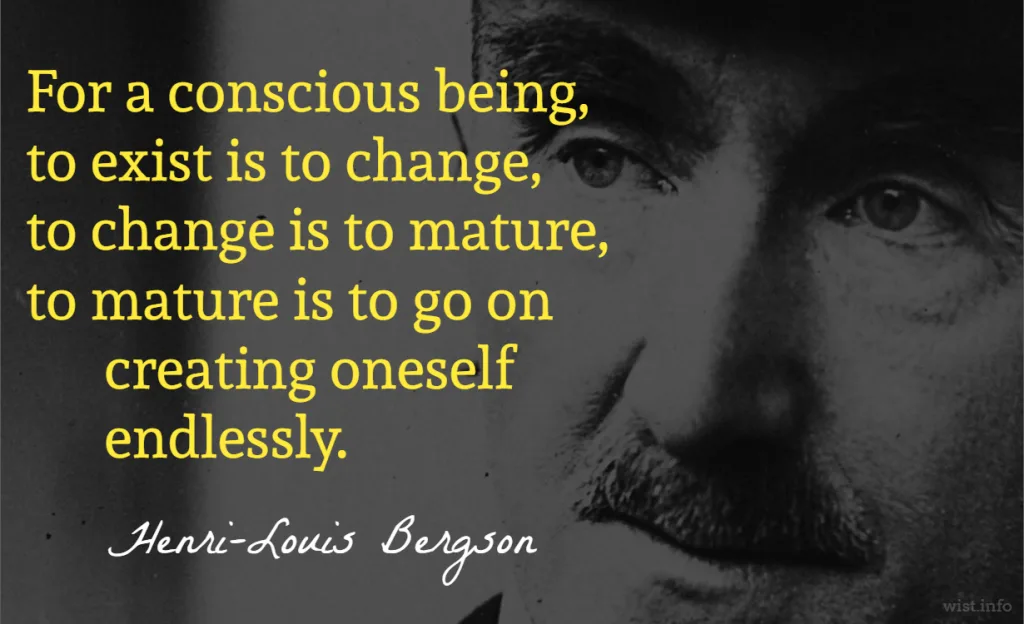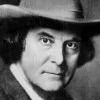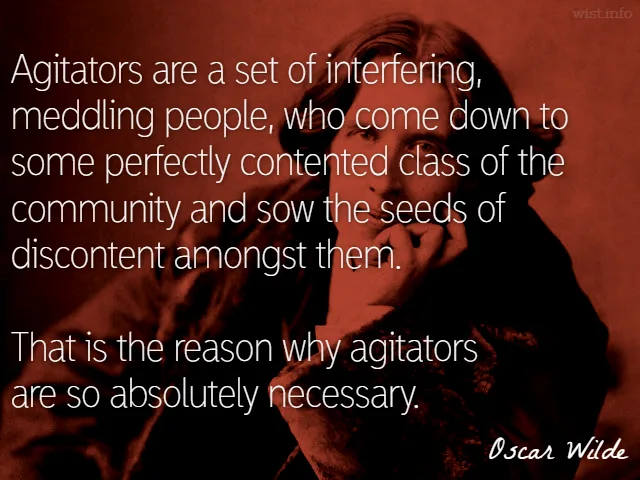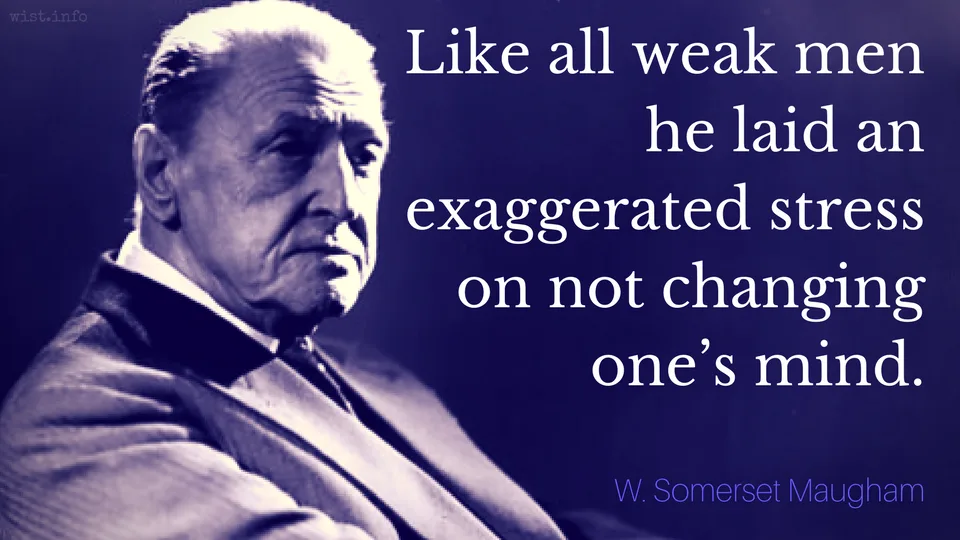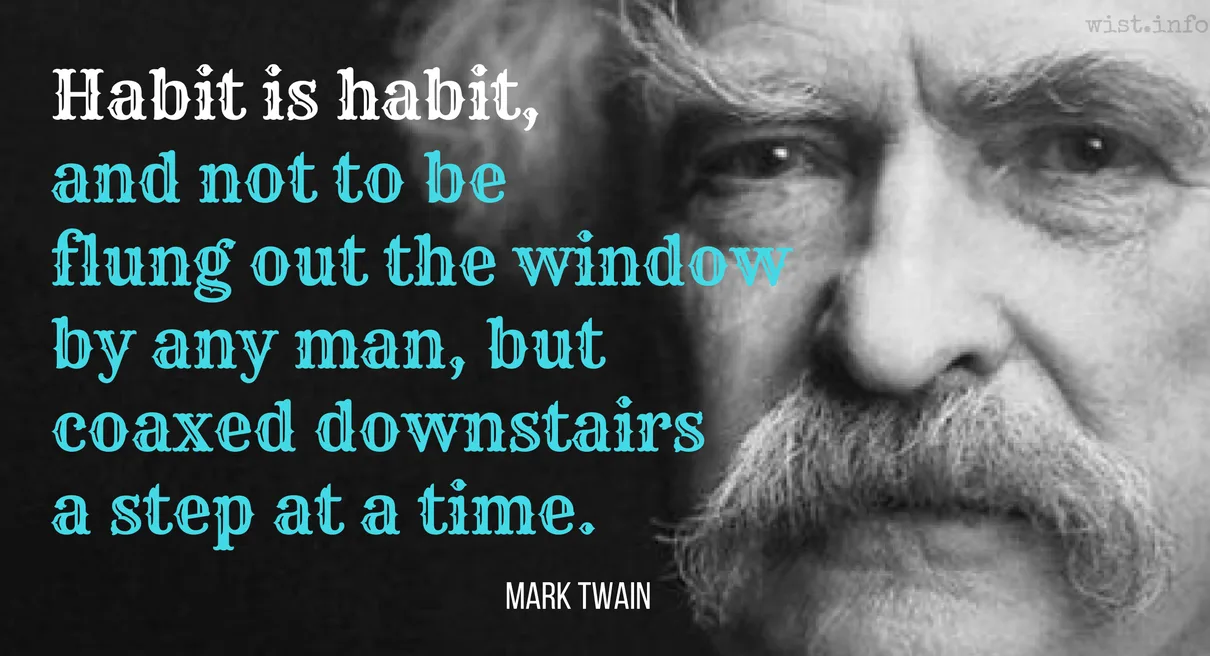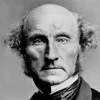Most revolutionaries are potential tories, because they imagine that everything can be put right by altering the shape of society; once that change is effected, as it sometimes is, they see no need for any other.
George Orwell (1903-1950) English writer [pseud. of Eric Arthur Blair]
Essay (1939), “Charles Dickens,” sec. 6, Inside the Whale (1940-03-11)
(Source)
Quotations about:
change
Note not all quotations have been tagged, so Search may find additional quotes on this topic.
Did you ever think what a waste it would be if you burned a man for what he believed at twenty, when what he might believe and write at forty would be hailed as the most blessed of holy writ?
Ellis Peters (1913-1995) English writer, translator [pseud. of Edith Mary Pargeter, who also wrote under the names John Redfern, Jolyon Carr, Peter Benedict]
The Heretic’s Apprentice, ch. 13 [Elave] (1990)
(Source)
That it is expedient to kill a king, rather than wait for his natural demise, is something a populace can come to accept, perhaps to relish. That the people’s own customs and costumes are to be radically changed by edict, rather than being allowed to evolve haphazardly and linger sentimentally beyond their time, is not. Yet messing with the national etiquette is one of the great spoils of revolutionary success.
Judith Martin (b. 1938) American author, journalist, etiquette expert [a.k.a. Miss Manners]
Star-Spangled Manners, Prologue (2003)
(Source)
When he left the bishop’s dwelling Jean Valjean, as we know, had been in a state of mind unlike anything he had ever experienced before and was quite unable to account for what was taking place within him. He had sought to harden his heart against the old man’s saintly act and moving words. “You have promised me to become an honest man. I am buying your soul. I am rescuing it from the spirit of perversity and giving it to God.” The words constantly returned to him and he sought to suppress them with arrogance, which in all of us is the stronghold of evil. Obscurely he perceived that the priest’s forgiveness was the most formidable assault he had ever sustained; that if he resisted it his heart would be hardened once and for all, and that if he yielded he must renounce the hatred which the acts of men had implanted in him during so many years, and to which he clung. He saw dimly that this time he must either conquer or be conquered, and that the battle was now joined, a momentous and decisive battle between the evil in himself and the goodness in that other man.
[Quand Jean Valjean était sorti de chez l’évêque, on l’a vu, il était hors de tout ce qui avait été sa pensée jusque-là. Il ne pouvait se rendre compte de ce qui se passait en lui. Il se roidissait contre l’action angélique et contre les douces paroles du vieillard. « Vous m’avez promis de devenir honnête homme. Je vous achète votre âme. Je la retire à l’esprit de perversité et je la donne au bon Dieu. » Cela lui revenait sans cesse. Il opposait à cette indulgence céleste l’orgueil, qui est en nous comme la forteresse du mal. Il sentait indistinctement que le pardon de ce prêtre était le plus grand assaut et la plus formidable attaque dont il eût encore été ébranlé ; que son endurcissement serait définitif s’il résistait à cette clémence ; que, s’il cédait, il faudrait renoncer à cette haine dont les actions des autres hommes avaient rempli son âme pendant tant d’années, et qui lui plaisait ; que cette fois il fallait vaincre ou être vaincu, et que la lutte, une lutte colossale et définitive, était engagée entre sa méchanceté à lui et la bonté de cet homme.]
Victor Hugo (1802-1885) French writer
Les Misérables, Part 1 “Fantine,” Book 2 “The Fall,” ch. 13 (1.2.13) (1862) [tr. Denny (1976)]
(Source)
(Source (French)). Alternate translations:When Jean Valjean left the bishop's house, as we have seen, his mood was one that he had never known before. He could understand nothing of what was passing within him. He set himself stubbornly in opposition to the angelic deeds and the gentle words of the old man, “you have promised me to become an honest man. I am purchasing your soul, I withdraw it from the spirit of perversity, and I give it to God Almighty." This came back to him incessantly. To this celestial tenderness, he opposed pride, which is the fortress of evil in man. He felt dimly that the pardon of this priest was the hardest assault, and the most formidable attack which he had yet sustained ; that his hardness of heart would be complete, if it resisted this kindness; that if he yielded, be must renounce that hatred with which the acts of other men had for so many years filled his soul, and in which he found satisfaction; that, this time, he must conquer or be conquered, and that the struggle, a gigantic and decisive struggle, had begun between his own wickedness, and the goodness of this man.
[tr. Wilbour (1862)]When Jean Valjean quitted the bishop’s house, he was lifted out of his former thoughts, and could not account for what was going on within him. He stiffened himself against the angelic deeds and gentle words of the old man: “You have promised me to become an honest man. I purchase your soul; I withdraw it from the spirit of perverseness, and give it to God.” This incessantly recurred to him, and he opposed to this celestial indulgence that pride which is within us as the fortress of evil. He felt instinctively that this priest’s forgiveness was the greatest and most formidable assault by which he had yet been shaken; that his hardening would be permanent if he resisted this clemency; that if he yielded he must renounce that hatred with which the actions of other men had filled his soul during so many years, and which pleased him; that this time he must either conquer or be vanquished, and that the struggle, a colossal and final struggle, had begun between his wickedness and that man’s goodness.
[tr. Wraxall (1862)]When Jean Valjean left the Bishop's house, he was, as we have seen, quite thrown out of everything that had been his thought hitherto. He could not yield to the evidence of what was going on within him. He hardened himself against the angelic action and the gentle words of the old man. "You have promised me to become an honest man. I buy your soul. I take it away from the spirit of perversity; I give it to the good God."
This recurred to his mind unceasingly. To this celestial kindness he opposed pride, which is the fortress of evil within us. He was indistinctly conscious that the pardon of this priest was the greatest assault and the most formidable attack which had moved him yet; that his obduracy was finally settled if he resisted this clemency; that if he yielded, he should be obliged to renounce that hatred with which the actions of other men had filled his soul through so many years, and which pleased him; that this time it was necessary to conquer or to be conquered; and that a struggle, a colossal and final struggle, had been begun between his viciousness and the goodness of that man.
[tr. Hapgood (1887)]When Jean Valjean left the bishop's house, as we saw, his thoughts were unlike any he had ever known before. He could understand nothing of what was going on inside him. He stubbornly resisted the angelic deeds and the gentle words of the old man, "You have promised me to become an honest man. I am purchasing your soul. I withdraw it from the spirit of perdition, and I give it to God!" This kept coming back to him. In opposition to this celestial tenderness, he summoned up pride, the fortress of evil in man. He dimly felt that this priest's pardon was the hardest assault, the most formidable attack he had ever sustained; that his hardness of heart would be complete, if it resisted this kindness; that if he yielded, he would have to renounce the hatred with which the acts of other men had for so many years filled his soul, and in which he found satisfaction; that, this time, he must conquer or be conquered, and that the struggle, a gigantic and decisive struggle, had begun between his own wrongs and the goodness of this man.
[tr. Wilbour/Fahnestock/MacAfee (1987)]When jean Valjean left the bishop's house he was, as we have seen, in what was to him an entirely different mental universe. He could not undersdtand what was going on inside him. He hardened himself against the old man's angelic deed and gentle words. "You promised to become an honest man. I'm buying your soul. I'm redeeming it from the spirit of iniquity and giving it to the good Lord." This kept coming back to him. This heavenly kindness he countered with pride -- the fortress of evil, as it were, within us. He had the indistinct feeling that this priest's forgiveness was the greatest assault and most tremendous attack he had ever experience. That if he resisted this clemency the hardening of his heart would be definitive. That if he yielded he would be obliged to renounce that hatred with which the deeds of other men had filled his soul over so many years, a hatred he relished. That this time he had to vanquish or be vanquished, and that the battle had been joined, a colossal and decisive battle, between his own wickedness and that man's goodness.
[tr. Donougher (2013)]
No nation can meet this changing world unless its people, individually and collectively, grow in ability to understand and handle the new knowledge as applied to increasingly intricate human relationships. That is why the teachers of America are the ultimate guardians of the human capital of America, the assets which must be made to pay social dividends if democracy is to survive.
Franklin Delano Roosevelt (1882-1945) American lawyer, politician, statesman, US President (1933-1945)
Speech (1938-06-30), National Education Association, World’s Fair, New York City
(Source)
Printer’s ink has been running a race against gunpowder these many, many years. Ink is handicapped, in a way, because you can blow up a man with gunpowder in half a second, while it may take twenty years to blow him up with a book. But the gunpowder destroys itself along with its victim, while a book can keep on exploding for centuries.
Christopher Morley (1890-1957) American journalist, novelist, essayist, poet
The Haunted Bookshop, ch. 6 [Roger Mifflin] (1919)
(Source)
When we think of loss we think of the loss, through death, of people we love. But loss is a far more encompassing theme in our life. For we lose not only through death, but also by leaving and being left, by changing and letting go and moving on. And our losses include not only our separations and departures from those we love, but our conscious and unconscious losses of romantic dreams, impossible expectations, illusions of freedom and power, illusions of safety — and the loss of our own younger self, the self that thought it would always be unwrinkled and invulnerable and immortal.
Judith Viorst (b. 1931) American writer, journalist, psychoanalysis researcher
Necessary Losses, Introduction (1986)
(Source)
Fear of change is, no doubt, in all of us, but it most afflicts the man who fears that any change must lead to loss of his wealth and status. When this fear becomes inordinate, he will, if he has political power, abrogate such things as civil rights and the rule of law, using the argument that he abrogates them only to preserve them. In my own country, the government, in order to preserve Christian civilization, uses methods incompatible with Christianity and abrogates values which are essential to any civilization which calls itself Christian. If only a man would say, “I do this because I’m afraid,” one could bear it; but when he says, “I do this because I’m good,” that is a bit too much.
Man comes to each age of his life as a novice.
[L’homme arrive novice à chaque âge de la vie.]
Nicolas Chamfort (1741-1794) French writer, epigrammist (b. Nicolas-Sébastien Roch)
Products of Perfected Civilization [Produits de la Civilisation Perfectionnée], Part 2 “Characters and Anecdotes [Caractères et Anecdotes],” ch. 12 (1795) [tr. Merwin (1969)]
(Source)
(Source (French)). Alternate translations:Man arrives a novice at every age of life.
[ed. Mathews (1878)]Man reaches each stage in his life as a novice.
[tr. Hutchinson (1902), "The Cynic's Breviary"]A man begins every stage of his life as a novice.
[tr. Parmée (2003), ¶ 422]
Few books can please us throughout life. For some we lose all liking as we grow in age, wisdom, or good sense.
[Peu de livres peuvent plaire toute la vie. Il y en a dont on se dégoûte avec le temps, la sagesse ou le bon sens.]
Joseph Joubert (1754-1824) French moralist, philosopher, essayist, poet
Pensées [Thoughts], ch. 23 “Des Qualités de l’Écrivain [Of the Qualities of Writers],” ¶ 178 (1850 ed.) [tr. Attwell (1896), ¶ 375]
(Source)
(Source (French)). Alternate translations:Few books give life-long pleasure. There are some for which, with the growth of time, wisdom, and good sense, we lose all taste.
[tr. Lyttelton (1899), ch. 22, ¶ 84]
Even so, one step from my grave,
I believe that cruelty, spite,
The powers of darkness will in time
Be crushed by the spirit of light.[Но и так, почти у гроба,
Верю я, придет пора —
Силу подлости и злобы
Одолеет дух добра.]Boris Pasternak (1890-1960) Russian poet, novelist, and literary translator
“Nobel Prize [Нобелевская Премия]” st. 4 (1959) [tr. Stallworthy/France (1982)]
(Source)
On his persecution for winning the 1958 Nobel Prize for Literature for Doctor Zhivago, which had been condemned by the Communist Party and the Soviet government. The poem was not published until Selected Poems (1983).
This upbeat ending is how the poem officially ends. Two more, darker, stanzas were attached to the manuscript by Pasternak, but it is unclear if they were meant to be added (and, if so, where), or if Pasternak ever wanted the poem published.
(Source (Russian)). Alternate translations:Even now, at the edge of the tomb,
I believe in the virtuous fate, --
And the spirit of goodness will soon
overcome all the malice and hate.
[tr. Kneller]But even as my grave awaits,
the time will come. I've believed --
The forces of meanness and hate
will be vanquished by the spirit of good.
[tr. Mager]Yet, as I approach my passing,
I believe the day is near,
When the heart of good surpasses
rage and baseness -- even here.
[tr. Moreton]Even in my dying hour
I believe it still stronger:
Malice will be overpowered
By the spirit of Good Will.
[tr. Astrakhan]
One reason that the task of inventing manners is so difficult is that etiquette is folk custom, and people have emotional ties to the forms of their youth. That is why there is such hostility between generations in times of rapid change; their manners being different, each feels affronted by the other, taking even the most surface choices for challenges.
Judith Martin (b. 1938) American author, journalist, etiquette expert [a.k.a. Miss Manners]
Common Courtesy, “On Etiquette as Language, Weapon, Custom, and Craft” (1985)
(Source)
LAZARUS: You’re so sentimental, Doctor. Maybe you are older than you look.
THE DOCTOR: I’m old enough to know that a longer life isn’t always a better one. In the end, you just get tired; tired of the struggle, tired of losing everyone that matters to you, tired of watching everything you love turn to dust. If you live long enough, Lazarus, the only certainty left is that you’ll end up alone.
LAZARUS: That’s a price worth paying.
THE DOCTOR: Is it?
Stephen Greenhorn (b. 1964) Scottish playwright and screenwriter
Doctor Who, (2005) 03×06 “The Lazarus Experiment” (2007-05-05)
(Source)
The first symptom is that hair grows on your ears. It’s very disconcerting.
Edward G. Robinson (1893-1973) American stage and film actor [b. Emanuel Goldenberg]
All My Yesterdays: An Autobiography, “Epilogue” (1973) [with Leonard Spigelgass]
(Source)
On growing old.
The “good old times” — all times when old are good —
Are gone.
This basic clash of ideas and wills is but one of the forces reshaping our globe — swept as it is by the tides of hope and fear, by crises in the headlines today that become mere footnotes tomorrow. Both the successes and the setbacks of the past year remain on our agenda of unfinished business. For every apparent blessing contains the seeds of danger — every area of trouble gives out a ray of hope — and the one unchangeable certainty is that nothing is certain or unchangeable.
But we are so blind to our own shortcomings, so wide awake to those of others. Everything that happens to us is always the other person’s fault. Angelina would have gone on loving Edwin forever and ever and ever if only Edwin had not grown so strange and different. Edwin would have adored Angelina through eternity if Angelina had only remained the same as when he first adored her.
It is a cheerless hour for you both when the lamp of love has gone out and the fire of affection is not yet lit, and you have to grope about in the cold, raw dawn of life to kindle it. God grant it catches light before the day is too far spent. Many sit shivering by the dead coals till night come.Jerome K. Jerome (1859-1927) English writer, humorist [Jerome Klapka Jerome]
Idle Thoughts of an Idle Fellow, “On Being In Love” (1886)
(Source)
But we are so blind to our own shortcomings, so wide awake to those of others. Everything that happens to us is always the other person’s fault. Angelina would have gone on loving Edwin forever and ever and ever if only Edwin had not grown so strange and different. Edwin would have adored Angelina through eternity if Angelina had only remained the same as when he first adored her.
It is a cheerless hour for you both when the lamp of love has gone out and the fire of affection is not yet lit, and you have to grope about in the cold, raw dawn of life to kindle it. God grant it catches light before the day is too far spent. Many sit shivering by the dead coals till night come.Jerome K. Jerome (1859-1927) English writer, humorist [Jerome Klapka Jerome]
Idle Thoughts of an Idle Fellow, “On Being in Love” (1886)
(Source)
ANNA: Well, people change, and forget to tell each other. Too bad — causes so many mistakes.
Lillian Hellman (1905-1984) American playwright, screenwriter
Toys in the Attic, Act 3 (1959)
(Source)
AHASUERAS: I am content.
ESTHER: Content is not the pathway to great deeds.
Ella Wheeler Wilcox (1850-1919) American author, poet, temperance advocate, spiritualist
Poem (1909), “The Drama of Mizpah: Honeymoon Scene,” Poems of Progress
(Source)
Every human being, like every animal, wants to live in what is felt to be a safe environment — an environment where you won’t be exposed to unexpected peril. Now, when a man tells you that something you’ve always believed was in fact not true, it gives you a frightful shock and you think, “Oh! I don’t know where I am. When I think I’m planting my foot upon the ground, perhaps I’m not.” And you get into a terror.
Bertrand Russell (1872-1970) English mathematician and philosopher
Interview by Woodrow Wyatt, BBC TV (1959)
On resistance to scientific discovery.
Collected in Bertrand Russell's BBC Interviews (1959) [UK] and Bertrand Russell Speaks His Mind (1960) [US]. Reprinted (abridged) in The Humanist (1982-11/12), and in Russell Society News, #37 (1983-02).
Change is certain. Progress is not.
E. H. Carr (1892-1982) British historian, journalist, international relations theorist [Edward Hallett "Ted" Carr]
(Attributed)
This is widely cited to his collection, From Napoleon to Stalin and Other Essays (1980), but I cannot find it there.
And yet if there’s one thing consistent about language it is that it is constantly changing. The only languages that do not change are those whose speakers are dead.
Rosalie Maggio (1944-2021) American writer
Unspinning the Spin: The Women’s Media Center Guide to Fair and Accurate Language, “Writing Guidelines / Introduction” (2014)
(Source)
This is sometimes attributed to Maggio's earlier The Bias-Free Word Finder (1992), but only the first sentence is present in that version.
The source link is to the web page that the WMC set up for the book.
No normal man who has smelled and associated with death ever wants to see any more of it. In fact, the only men who are even going to want to bloody noses in a fist fight after this war will be those who want people to think they were tough combat men, when they weren’t. The surest way to become a pacifist is to join the infantry.
Dissatisfaction with the world in which we live and determination to realize one that shall be better, are the prevailing characteristics of the modern spirit.
G. Lowes Dickinson (1862-1932) British political scientist and philosopher [Goldsworthy "Goldie" Lowes Dickinson]
The Greek View of Life, ch. 5 “Conclusion” (1911)
(Source)
I think of Art, at its most significant, as a DEW line, a Distant Early Warning system, that can always be relied on to tell the old culture what is beginning to happen to it.
Marshall McLuhan (1911-1980) Canadian philosopher, communication theorist, educator
Quoted in Richard Schickel, “Marshall McLuhan: Canada’s Intellectual Comet,” Harper’s Magazine (1965-11)
(Source)
This life is a hospital in which every patient is haunted by the desire to change beds. This one wants to suffer in front of the stove, and that one believes he will recover next to the window.
[Cette vie est un hôpital où chaque malade est possédé du désir de changer de lit. Celui-ci voudrait souffrir en face du poêle, et celui-là croit qu’il guérirait à côté de la fenêtre.]Charles Baudelaire (1821-1867) French poet, essayist, art critic
Le Spleen de Paris (Petits Poèmes en Prose), No. 48 “Any Where Out of the world” (1869) [tr. Kaplan (1989)]
(Source)
The title of the original is in English, a line from Thomas Hood, "The Bridge of Sighs." It is often subtitled with the French translation, "N’importe où hors du monde," which are the final lines.
(Source (French)). Alternate translations:Life is a hospital, in which every patient is possessed by the desire of changing his bed. One would prefer to suffer near the fire, and another is certain that he would get well if he were by the window.
[tr. Symons (<1919)]This life is a hospital where every patient is possessed with the desire to change beds; one man would like to suffer in front of the stove, and another believes that he would recover his health beside the window.
[tr. Hamburger (1946)]Life is a hospital where every patient is obsessed by the desire of changing beds. One would like to suffer opposite the stove, another is sure he would get well beside the window.
[tr. Varèse (1970)]This life is a hospital where each patient is possessed with the desire of changing his bed. One would like to suffer in front of the stove, and another believes he would get well beside the windows.
[tr. Fowlie (1992)]This life is a hospital, where each patient is possessed by the desire to change beds. That one prefers to suffer nearer the stove and this one believes he would get well next to the window.
[tr. Waldrop (2009)]
GLOUCESTER: These late eclipses in the sun and moon portend no good to us. Though the wisdom of nature can reason it thus and thus, yet nature finds itself scourged by the sequent effects. Love cools, friendship falls off, brothers divide; in cities, mutinies; in countries, discord; in palaces, treason; and the bond cracked ’twixt son and father. This villain of mine comes under the prediction: there’s son against father. The King falls from bias of nature: there’s father against child. We have seen the best of our time. Machinations, hollowness, treachery, and all ruinous disorders follow us disquietly to our graves.
William Shakespeare (1564-1616) English dramatist and poet
King Lear, Act 1, sc. 2, l. 109ff (1.2.109-121) (1606)
(Source)
Man comes to each age of his life a novice.
[L’homme arrive novice à chaque âge de la vie.]
Nicolas Chamfort (1741-1794) French writer, epigrammist (b. Nicolas-Sébastien Roch)
Products of Perfected Civilization [Produits de la Civilisation Perfectionnée], Part 2 Characters and Anecdotes [Caractères et Anecdotes], ch. 12 (1795) [tr. Merwin (1969)]
(Source)
(Source (French)). Alternate translations:Man arrives a novice at every age of life.
[Source (1878)]Man reaches each stage in his life as a novice.
[tr. Hutchinson (1902), "The Cynic's Breviary"]A man begins every stage of his life as a novice.
[tr. Parmée, ¶412 (2003)]
Two conditions are essential to the realization of justice according to law. The law must have an authority supreme over the will of the individual, and such an authority can arise only from a background of social acquiescence, which gives it the voice of indefinitely greater numbers than those of its expositors. Thus, the law surpasses the deliverances of even the most exalted of its prophets; the momentum of its composite will alone makes it effective to coerce the individual and reconciles him to his subserviency. The pious traditionalism of the law has its roots in a sound conviction of this necessity; it must be content to lag behind the best inspiration of its time until it feels behind it the weight of such general acceptance as will give sanction to its pretension to unquestioned dictation.
Learned Hand (1872-1961) American jurist
“The Speech of Justice,” Harvard Law Review (1916-04)
(Source)
Collected in The Spirit of Liberty (1953).
Books aren’t just commodities; the profit motive is often in conflict with the aims of art. We live in capitalism, its power seems inescapable — but then, so did the divine right of kings. Any human power can be resisted and changed by human beings. Resistance and change often begin in art. Very often in our art, the art of words.
Ursula K. Le Guin (1929-2018) American writer
Speech, accepting the National Book Foundation Medal (19 Nov 2014)
(Source)
On receiving the National Book Foundation Medal for Distinguished Contribution to American Letters at the 65th National Book Awards. Video of the speech.
It feels cooler to say, “I’m not woke,” than the truth, which is, “I’m terrified of what I don’t understand and I only know how to process that as anger because I can’t look inward.”
Sarah Silverman (b. 1970) American stand-up comedian, actress, writer
The Daily Show (15 Feb 2023)
(Source)
Hope is the feeling we have that the feeling we have is not permanent.
Mignon McLaughlin (1913-1983) American journalist and author
The Neurotic’s Notebook, ch. 5 (1963)
(Source)
This phrase is often cited to Jean Kerr. That's because she paraphrases it in her play, Finishing Touches, Act 3 (1974):FELICIA: Do you know the book The Neurotic's Notebook? There's a line in it I say to myself when I get discouraged. It goes: "Hope is the feeling you have that the feeling you have isn't permanent."
You can’t save others from themselves because those who make a perpetual muddle of their lives don’t appreciate your interfering with the drama they’ve created. They want your poor-sweet-baby sympathy, but they don’t want to change. This is a truth I never seem to learn.
“Dystopia” isn’t when things go wrong. Assuming nothing will go wrong doesn’t make you an optimist, it makes you an asshole. A dangerous asshole. Assuming nothing will go wrong is why they didn’t put enough lifeboats on the Titanic. Dystopia isn’t where things go wrong. Dystopia is when things go wrong, and nothing can be done about it.
People often overestimate what will happen in the next two years and underestimate what will happen in ten.
Bill Gates (b. 1955) American software magnate [William Henry Gates III]
The Road Ahead, “Afterword” (1996 ed.)
(Source)
First use of this specific formulation, but similar phrases can be traced back to the 1960s. More discussion of variations on this theme: People Tend To Overestimate What Can Be Done In One Year And To Underestimate What Can Be Done In Five Or Ten Years – Quote Investigator®.
We can’t be creative if we refuse to be confused. Change always starts with confusion; cherished interpretations must dissolve to make way for what’s new.
Margaret J. "Meg" Wheatley (b. 1944) American writer, teacher, speaker, management consultant
Turning to One Another, “Willing to Be Disturbed” (2002)
(Source)
Looking back, you can usually find the moment of the birth of new era, whereas, when it happened, it was one day hooked on the tail of another.
Adapt or perish, now as ever, is Nature’s inexorable imperative.
H.G. Wells (1866-1946) British writer [Herbert George Wells]
Mind at the End of Its Tether, ch. 4 “Recent Realizations of the Nature of Life” (1945)
(Source)
The only way to make sense out of change is to plunge into it, move with it, and join the dance.
Alan Watts (1915-1973) Anglo-American philosopher, writer
The Wisdom of Insecurity: A Message for an Age of Anxiety, ch. 3 (1951)
(Source)
When people are ready to, they change. They never do it before then, and sometimes they die before they get around to it. You can’t make them change if they don’t want to, just like when they do want to, you can’t stop them.
Andy Warhol (1928-1987) American artist, author
POPism: The Warhol Sixties, “1965” (1980) [with Pat Hackett]
(Source)
Regarding drug and alcohol use.
It is never too late — in fiction or in life — to revise.
Men do change, and change comes like a little wind that ruffles the curtains at dawn, and it comes like the stealthy perfume of wildflowers hidden in the grass. Change may be announced by a small ache, so that you think you’re catching cold. Or you may feel a faint disgust for something you loved yesterday. It may even take the form of a hunger that peanuts won’t satisfy.
Sometimes change came all at once, with a sound like a fire taking hold of dry wood and paper, with a roar that rose around you so you couldn’t hear yourself think. And then, when the roar died down, even when the fires were damped, everything was different.
Ignorance is always afraid of change. It fears the unknown and sticks to its rut, however miserable it may be there. In its blindness it stumbles on anyhow.
Jawaharlal Nehru (1889-1964) Indian nationalist leader, politician, statesman, author
Glimpses of World History, Letter 82, 4 Aug 1932 (1934)
(Source)
As turning the logs will make a dull fire burn, so change of studies a dull brain.
In a time of drastic change it is the learners who inherit the future. The learned usually find themselves equipped to live in a world that no longer exists.
Eric Hoffer (1902-1983) American writer, philosopher, longshoreman
Reflections on the Human Condition, ch. 1, § 32 (1973)
(Source)
And now I understand
something so frightening, and wonderful —
how the mind clings to the road it knows, rushing
through crossroads, sticking
like lint to the familiar.
We used to think that revolution is the cause of change. Actually, it is the other way around: revolution is a by-product of change. Change comes first, and it is the difficulties and irritations inherent in change that set the stage for revolution. To say that revolution is the cause of change is like saying juvenile delinquency is the cause of the change from boyhood to manhood.
Whenever you take a step forward you are bound to disturb something. You disturb the air as you go forward, you disturb the dust, the ground. You trample upon things. When a whole society moves forward this trampling is on a much bigger scale and each thing that you disturb, each vested interest which you want to remove, stands as an obstacle.
Indira Gandhi (1917-1984) Indian politician
“Poverty: India’s Vital Problem,” speech, Madras University (Jan 1967)
(Source)
Convictions no doubt have to be modified or expanded to meet changing conditions […] but to be a reliable political leader sooner or later your anchors must hold fast where other men’s drag.
Margot Asquith (1864-1945) British socialite, author, wit [Emma Margaret Asquith, Countess Oxford and Asquith; Margot Oxford; née Tennant]
More or Less about Myself, ch. 3 (1934)
(Source)
Come, come, my conservative friend, wipe the dew off your spectacles, and see that the world is moving.
Elizabeth Cady Stanton (1815-1902) American social activist, abolitionist, woman's suffragist
The Woman’s Bible, Part 1, Introduction (1895)
(Source)
A belated discovery, one that causes considerable anguish, is that no one can persuade another to change. Each of us guards a gate of change that can only be unlocked from the inside. We cannot open the gate of another, either by argument or emotional appeal.
Marilyn Ferguson (1938-2008) American author, editor, public speaker
The Aquarian Conspiracy, ch. 4 (1980)
(Source)
It is only in romances that people undergo a sudden metamorphosis. In real life, even after the most terrible experiences, the main character remains exactly the same.
MERL: Funny thing about change, it’s like pulling off a bandage. Hurts like hell when you do it, but you always feel better after.
Hart Bochner (b. 1956) Canadian actor, film director, screenwriter, producer
Just Add Water (2008)
(Source)
The role of Merl Striker was played by Danny Devito.
Conservatives are always with us, they have been opposing change ever since the days of the cave-man. But, fortunately for mankind, they agitate in vain.
Weep not that the world changes — did it keep
A stable, changeless state, ’twere cause indeed to weep.William Cullen Bryant (1794-1878) American poet and editor
“Sonnet — Mutation,” ll. 13-14 (1824)
(Source)
There is an enormous variety of things we’ve discovered that we never dreamed of, like, for example, black holes, pulsars, quasars, all these unbelievably active goings-on in the universe. Which in Aristotle’s time the universe, the sky, was supposed to be quiescent, it was supposed to be perfect and peaceful, and nothing ever happened in the celestial sphere; and that remained true, actually, throughout all of the revolutions. It remained the general view of astronomers right through Copernicus, and Galileo, and Newton, and everybody else, still, the universe looked very quiescent — until just the last thirty years, and now we know it’s not like that at all. In fact the universe is full of violent events, and fantastic, strong gravitational fields, and collapsed objects, and huge outpourings of energy. All these things were discovered in the last thirty years.
Freeman Dyson (1923-2020) English-American theoretical physicist, mathematician, futurist
“Freeman Dyson: In Praise of Diversity,” Interview on A Glorious Accident, VPRO (Netherlands) (30 Aug 2016)
(Source)
Man feels the need to rake leaves, clean up the summer’s remnants, proclaim his tenancy by making things neat and tidy. Nature doesn’t bother. The tree thrives on its own trash and the see sprouts in the parent plant’s midden heap. Each new season grows from the leftovers from the past. That is the essence of change, and change is the basic law. Nature hasn’t time to be neat and tidy.
There is a strong conservative instinct in the average man or woman, born of the hereditary fear of life, that prompts them to cling to old standards, or, if too intelligent to look inhospitably upon progress, to move very slowly. Both types are the brakes and wheelhorses necessary to a stable civilization, but history, even current history in the newspapers, would be dull reading if there were no adventurous spirits willing to do battle for new ideas.
Gertrude Atherton (1857-1948) American author, essayist
The Living Present, Book 2, ch. 1, sec. 1 (1917)
(Source)
When you are through changing, you are through.
Bruce Barton (1886-1967) American author, advertising executive, politician
Article Title, The American Magazine (1929?)
(Source)
Barton was a regular contributor to The American Magazine. Both the cited source (from 1929) and this suggest this was an article he contributed no later than 1929.
The saying has been misattributed to a number of more recent consultants, motivational speakers, etc.
All changes are more or less tinged with melancholy, for what we are leaving behind is part of ourselves.
Amelia E. Barr (1831-1919) British novelist and teacher.
All the Days of My Life, ch. 6 (1913)
(Source)
See Anatole France.
Most anarchists believe the coming change can only come through a revolution, because the possessing class will not allow a peaceful change to take place; still we are willing to work for peace at any price, except at the price of liberty.
Lucy Parsons (1851-1942) American labor organizer, anarchist, orator [a.k.a. Lucy Gonzalez]
“The Principles of Anarchism,” lecture (1905)
(Source)
PROTEUS: Oh, how this spring of love resembleth
The uncertain glory of an April day;
Which now shows all the beauty of the sun,
And by and by a cloud takes all away!William Shakespeare (1564-1616) English dramatist and poet
Two Gentlemen of Verona, Act 1, sc. 3, l. 85ff (1.3.85-88) (c. 1590)
(Source)
Living things tend to change unrecognizably as they grow. Who would deduce the dragonfly from the larva, the iris from the bud, the lawyer from the infant? Flora or fauna, we are all shape-shifters and magic reinventors. Life is really a plural noun, a caravan of selves.
Diane Ackerman (b. 1948) American poet, author, naturalist
Cultivating Delight; A Natural History of My Garden, ch. 6 (2001)
(Source)
What threatens our security is not change but the inability to change; what threatens progress is not revolution but stagnation; what threatens our survival is not novel or dangerous ideas but the absence of ideas.
Henry Steele Commager (1902-1998) American historian, writer, activist
“The University and the Community of Learning,” speech, Kent State University, Ohio (10 Apr 1971)
(Source)
Governments never lead; they follow progress. When the prison, stake or scaffold can no longer silence the voice of the protesting minority, progress moves on a step, but not until then.
Lucy Parsons (1851-1942) American labor organizer, anarchist, orator [a.k.a. Lucy Gonzalez]
“The Principles of Anarchism,” lecture (1905)
(Source)
Fascist politics feeds off the sense of aggrieved victimization caused by loss of hierarchal status. Empires in decline are particularly susceptible to fascist politics because of this sense of loss. It is in the very nature of empire to create hierarchy; empires legitimize their colonial enterprises by the myth of their own exceptionalism. In the course of decline, the population is easily led to a sense of national humiliation that can be mobilized in fascist politics to serve various purposes.
Jason Stanley (b. 1969) American philosopher, epistemologist, academic
How Fascism Works: The Politics of Us and Them, ch. 5 (2018)
(Source)
When a people are confronted with problems that are both incomprehensible and unbearable, they lash out not at those who contrived the problems but at those who expose them. When they are confronted by moral problems that they find insoluble, or perhaps intolerable, they blame the moralists. The anxieties, tensions, revulsions of our day create an atmosphere in which it is almost impossible to think clearly and dispassionately about just those problems which most imperatively require reason and objectivity — problems of adjustment to fundamental change.
Henry Steele Commager (1902-1998) American historian, writer, activist
“The University and the Community of Learning,” speech, Kent State University, Ohio (10 Apr 1971)
(Source)
Why have I always told you that the greatest way to change the world is to secretly commit little acts of compassion? It does not matter that people know what you are doing, but rather that you do it. When a large enough number of people finally do something, or something is done enough times, be it prayer or vegetarianism or whatever, it will then happen everywhere, to everyone. It will suddenly seem just normal. […] You must behave as if your every act, even the smallest, impacted a thousand people for a hundred generations. Because it does.
Thomas "Thom" Hartmann (b. 1951) American broadcaster, psychotherapist, businessman, political commentator
The Prophet’s Way: A Guide to Living in the Now, “The Hundredth Monkey” (1997)
(Source)
Often quoted as:The most powerful way to change the world is to secretly commit little acts of compassion. You must behave as if your every act, even the smallest, impacted a thousand people for a hundred generations. Because it does.
Awful as silence. Hark! the rushing snow!
The sun-awakened avalanche! whose mass,
Thrice sifted by the storm, had gathered there
Flake after flake, in heaven-defying minds
As thought by thought is piled, till some great truth
Is loosened, and the nations echo round,
Shaken to their roots, as do the mountains now.
There is no sin punished more implacably by nature than the sin of resistance to change. For change is the very essence of living matter. To resist change is to sin against life itself.
Before you’ll change, something important must be at risk.
Richard Bach (b. 1936) American writer
Messiah’s Handbook: Reminders for the Advanced Soul (2004)
(Source)
I worked my way back into a stony declivity and settled myself upon a low ledge. I began the troublesome shapeshifting work, which I paced to take me half an hour or so. Changing from something nominally human to something rare and strange — perhaps monstrous to some, perhaps frightening — and then back again is a concept some may find repugnant. They shouldn’t. We all of us do it every day in many different ways, don’t we?
You can’t go back and change the beginning, but you can start where you are and change the ending.
C. S. Lewis (1898-1963) English writer, literary scholar, lay theologian [Clive Staples Lewis]
(Spurious)
Not found in Lewis' writings, and not considered authentic. There is some similarity to this Lewis quotation. More discussion here:
Change does not necessarily assure progress, but progress implacably requires change.
Henry Steele Commager (1902-1998) American historian, writer, activist
“We Have Changed — and Must,” The New York Times Magazine (30 Apr 1961)
(Source)
Loyalty … is a realization that America was born of revolt, flourished in dissent, became great through experimentation.
For the world is changing: I feel it in the water, I feel it in the earth, and I smell it in the air.
J.R.R. Tolkien (1892-1973) English writer, fabulist, philologist, academic [John Ronald Reuel Tolkien]
The Lord of the Rings, Vol. 3: The Return of the King, Book 6, ch. 6 “Many Partings” [Treebeard] (1954)
(Source)
While Peter Jackson's Lord of the Rings movie put this in the prologue to The Fellowship of the Ring (2001), and in the mouth of Galadriel, in the book it is spoken by the ent Treebeard to Celeborn and Galadriel, adding, "I do not think we shall meet again."
The values to which people cling most stubbornly under inappropriate conditions are those values that were previously the source of their greatest triumphs.
Jared Diamond (b. 1937) American geographer, historian, ornithologist, author
Collapse: How Societies Choose to Fail or Succeed, ch. 8 (2005)
(Source)
What are the choices that we must make if we are now to succeed, and not to fail? […] Two types of choices seem to me to have been crucial to tipping their outcomes towards success or failure: long-term planning, and willingness to reconsider core values. On reflection, we can also recognize the crucial role of these same two choices for the outcomes of our individual lives.
One of those choices has depended on the courage to practice long-term thinking, and to make bold, courageous, anticipatory decisions at a time when problems have become perceptible but before they have reached crisis proportions. […] The other crucial choice illuminated by the past involves the courage to make painful decisions about values. Which of the values that formerly served a society well can continue to be maintained under new changed circumstances? Which of these treasured values must instead be jettisoned and replaced with different approaches?
Jared Diamond (b. 1937) American geographer, historian, ornithologist, author
Collapse: How Societies Choose to Fail or Succeed, ch. 16 “The World as a Polder” (2005)
(Source)
A great wind is blowing, and that gives you either imagination or a headache.
Catherine II (1762-1796) Russian empress [Catherine the Great; b. Sophie of Anhalt-Zerbst]
Letter to Baron Friedrich von Grimm (29 Apr 1775)
(Source)
In the Collections of the Imperial Society of Russian History, Vol. 23, Catherine the Great, Letters to Grimm, quoted in Gamaliel Bradford, Daughters of Eve (1930).
I noted that it is sometimes hard to tell whether you are being killed or saved by the hands that turn your life upside down.
Barbara Brown Taylor (b. 1951) American minister, academic, author
Learning to Walk in the Dark, ch. 3 (2014)
(Source)
It is never quite safe to think we have done with life. When we imagine we have finished our story fate has a trick of turning the page and showing us yet another chapter.
Truth is like the flu. I fight it off, but it changes in other bodies and returns in a form to which I am not immune.
James Richardson (b. 1950) American poet
“Vectors: 56 Aphorisms and Ten-second Essays,” Michigan Quarterly Review, #49 (Spring 1999)
(Source)
A man may be in as just possession of Truth as of a City, and yet be forced to surrender.
Thomas Browne (1605-1682) English physician and author
Religio Medici, Part 1, sec. 6 (1643)
(Source)
Everyone loves the Revolution. We only disagree on whether it has occurred.
James Richardson (b. 1950) American poet
“Vectors: 56 Aphorisms and Ten-second Essays,” Michigan Quarterly Review, # 8 (Spring 1999)
(Source)
Desire’s most seductive promise is not pleasure but change, not that you might possess your object but that you might become the one who belongs with it.
James Richardson (b. 1950) American poet
“Vectors: 56 Aphorisms and Ten-second Essays,” Michigan Quarterly Review, # 2 (Spring 1999)
(Source)
Contumely always falls upon those who break through some custom or convention. Such men, in fact, are called criminals. Everyone who overthrows an existing law is, at the start, regarded as a wicket man. Long afterward, when it is found that this law was bad and so cannot be re-established, the epithet is changed. All history treats almost exclusively of wicked men who, in the course of time, have come to be looked upon as good men. All progress is the result of successful crimes.
Friedrich Nietzsche (1844-1900) German philosopher and poet
The Dawn [Morgenröte], sec. 20 (1881) [Mencken (1907)]
(Source)
Alternate translations:We have to make good a great deal of the contumely which has fallen on all those who, by their actions, have broken through the conventionality of some custom -- such people generally have been called criminals. Everybody who overthrew the existing moral law has hitherto, at least in the beginning, been considered a wicked man; but when afterwards, as sometimes happened, the old law could not be re-established and had to be abandoned, the epithet was gradually changed. History almost exclusively treats of such wicked men who, in the course of time, have been declared good men.
[tr. Volz (1903)]One has to take back much of the defamation which people have cast upon all those who broke through the spell of a custom by means of a deed -- in general, they are called criminals. Whoever has overthrown an existing law of custom has hitherto always first been accounted a bad man: but when, as did happen the laws could not afterwards be reinstated and this fact was accepted, the predicate gradually changed -- history treats almost exclusively of these bad men who subsequently became good men!
[tr. Hollingdale (1997)]
Were there none who were discontented with what they have, the world would never reach anything better.
Florence Nightingale (1820-1910) English social reformer, statistician, founder of modern nursing
Cassandra (1860)
(Source)
All citizens do have a measure of control, at least in democracies where their votes are counted, of how they belong to their nations. Perhaps they will have more confidence in unconventional choices if they see that each nation’s founders were disobedient and unpredictable, men and women of imagination and ambition. The steel of every national monument was once molten.
Timothy Snyder (b. 1969) American historian, author
The Red Prince, “Orange: European Revolutions” (2008)
(Source)
I think we’d like life to be a train. And you get on and pick a destination and get off. And it turns out to be a sailboat. And everyday, you have to see where the wind is and check the currents and see if there’s anybody else on the boat you can help out. But it is a sailboat ride. And the weather changes, and the currents change, and the wind changes. It’s not a train ride. That’s the hardest thing I’ve had to accept in my life. I just thought I had to pick the right train.
Barbara Brown Taylor (b. 1951) American minister, academic, author
Super Soul Sunday, s. 5, ep. 522, “Why Life Is Like a Sailboat Ride,” Oprah Winfrey Network (9 Nov 2014)
(Source)
Starts at 0:48 in the source video. Usually just rendered down as "I think we'd like life to be a train ... but it turns out to be a sailboat."
I am certainly not an advocate for frequent & untried changes in laws and constitutions. I think moderate imperfections had better be borne with; because when once known, we accommodate ourselves to them, and find practical means of correcting their ill effects. but I know also that laws and institutions must go hand in hand with the progress of the human mind. as that becomes more developed, more enlightened, as new discoveries are made, new truths disclosed, and manners and opinions change with the change of circumstances, institutions must advance also, and keep pace with the times. we might as well require a man to wear still the coat which fitted him when a boy, as civilised society to remain ever under the regimen of their barbarous ancestors.
Thomas Jefferson (1743-1826) American political philosopher, polymath, statesman, US President (1801-09)
Letter (1816-07-12) to “Henry Tompkinson” (Samuel Kercheval)
(Source)
Inscribed (elided) on southeast side of the Jefferson Memorial:I am not an advocate for frequent changes in laws and constitutions, but laws and institutions must go hand in hand with the progress of the human mind. As that becomes more developed, more enlightened, as new discoveries are made, new truths discovered and manners and opinions change, with the change of circumstances, institutions must advance also to keep pace with the times. We might as well require a man to wear still the coat which fitted him when a boy as a civilized society to remain ever under the regimen of their barbarous ancestors.
Does anything in nature despair except man? An animal with a foot caught in a trap does not seem to despair. It is too busy trying to survive. It is all closed in, to a kind of still, intense waiting. Is this a key? Keep busy with survival. Imitate the trees. Learn to lose in order to recover, and remember that nothing stays the same for long, not even pain, psychic pain. Sit it out. Let it all pass. Let it go.
May Sarton (1912-1995) Belgian-American poet, novelist, memoirist [pen name of Eleanore Marie Sarton]
Journal of a Solitude, “October 6th” (1973)
(Source)
Language is not a protocol legislated by an authority, but rather a wiki that pools the contributions of millions of writers and speakers, who ceaselessly bend the language to their needs and who inexorably age, die, and get replaced by their children, who adapt the language in their turn.
Steven Pinker (b. 1954) Canadian-American cognitive psychologist, linguist, author
The Sense of Style, Prologue (2014)
(Source)
As people age, they confuse changes in themselves with changes in the world, and changes in the world with moral decline — the illusion of the good old days. And so every generation believes that the kids today are degrading the language and taking civilization down with it.
Steven Pinker (b. 1954) Canadian-American cognitive psychologist, linguist, author
The Sense of Style, Prologue (2014)
(Source)
Conformity may give you a quiet life; it may even bring you to a University Chair. But all change in history, all advance, comes from the nonconformists. If there had been no trouble-makers, no Dissenters, we should still be living in caves.
Every day of our lives we are on the verge of making those changes that would make all the difference.
Mignon McLaughlin (1913-1983) American journalist and author
The Neurotic’s Notebook, ch. 4 (1963)
(Source)
It is not sufficient that the state of affairs which we seek to promote should be better than the state of affairs which preceded it; it must be sufficiently better to make up for the evils of the transition.
John Maynard Keynes (1883-1946) English economist
“The Political Doctrines of Edmund Burke” (1904)
(Source)
Imagination continually frustrates tradition; that is its function.
John Pfeiffer (1914-1999) American anthropologist, author
“Nature, the Radical Conservative,” New York Times (29 Apr 1979)
(Source)
Book review of Gregory Bateson, Mind and Nature. This quotation is frequently misattributed to Jules Feiffer.
Human nature, if it changes at all, changes not much faster than the geological face of the earth.
Alexander Solzhenitsen (1918-2008) Russian novelist, emigre [Aleksandr Isayevich Solzhenitsyn]
The Gulag Archipelago, Vol. 1 (1973) [tr. Whitney]
(Source)
Artists and scientists realize that no solution is ever final, but that each new creative step points the way to the next artistic or scientific problem. In contrast, those who embrace religious revelations and delusional systems tend to see them as unshakeable and permanent.
Anthony Storr (1920-2001) English psychiatrist and author
Feet of Clay: Saints, Sinners and Madmen, Introduction (1996)
(Source)
Why do you go away? So that you can come back. So that you can see the place you came from with new eyes and extra colors. And the people there see you differently, too. Coming back to where you started is not the same as never leaving.
As a cause becomes more and more successful, the ideas of the people engaged in it are bound to change.
Margaret Sanger (1879-1966) American birth control activist, sex educator, nurse
Margaret Sanger: An Autobiography, ch. 32 (1938)
(Source)
No,
it’s no disgrace for a man, even a wise man,
to learn many things and not to be too rigid.
You’ve seen trees by a raging winter torrent,
how many sway with the flood and salvage every twig,
but not the stubborn — they’re ripped out, roots and all.[ἀλλ᾽ ἄνδρα, κεἴ τις ᾖ σοφός, τὸ μανθάνειν
πόλλ᾽, αἰσχρὸν οὐδὲν καὶ τὸ μὴ τείνειν ἄγαν.
ὁρᾷς παρὰ ῥείθροισι χειμάρροις ὅσα
δένδρων ὑπείκει, κλῶνας ὡς ἐκσῴζεται,
τὰ δ᾽ ἀντιτείνοντ᾽ αὐτόπρεμν᾽ ἀπόλλυται.]Sophocles (496-406 BC) Greek tragic playwright
Antigone, l. 710ff [Haemon] (441 BC) [tr. Fagles (1982), l. 794ff]
(Source)
Ancient Greek. Alternate translations:But that a man, how wise soe'er, should learn
In many things and slack his stubborn will,
This is no derogation. When the streams
Are swollen by mountain-torrents, thou hast seen
That all the trees wich bend them to the flood
Preserve their branches from the angry current,
While those which stem it perish root and branch.
[tr. Donaldson (1848)]The wisest man will let himself be swayed
By others' wisdom and relax in time.
See how the trees beside a stream in flood
Save, if they yield to force, each spray unharmed,
But by resisting perish root and branch.
[tr. Campbell (1873)]'Tis no disgrace even to the wise to learn
And lend an ear to reason. You may see
The plant that yields where torrent waters flow
Saves every little twig, when the stout tree
Is torn away and dies.
[tr. Storr (1859)]No, even when a man is wise, it brings him no shame to learn many things, and not to be too rigid. You see how the trees that stand beside the torrential streams created by a winter storm yield to it and save their branches, while the stiff and rigid perish root and all?
[tr. Jebb (1891)]True wisdom will be ever glad to learn,
And not too fond of power. Observe the trees,
That bend to wintry torrents, how their boughs
Unhurt remain; while those that brave the storm,
Uprooted torn, shall wither and decay.
[tr. Werner (1892)]No, though a man be wise, 'tis no shame for him to learn many things, and to bend in season. Seest thou, beside the wintry torrent's course, how the trees that yield to it save every twig, while the stiff-necked perish root and branch?
[tr. Jebb (1917)]It is not reason never to yield to reason!
In flood time you can see how some trees bend,
And because they bend, even their twigs are safe,
While stubborn trees are torn up, roots and all
[tr. Fitts/Fitzgerald (1939), l. 570ff]It is no weakness for the wisest man
To learn when he is wrong, know when to yield.
So, on the margin of a flooded river
Trees bending to the torrent live unbroken,
While those that strain against it are snapped off.
[tr. Watling (1947), l. 608ff]A man, though wise, should never be ashamed
of learning more, and must unbend his mind.
Have you not seen the trees beside the torrent,
the ones that bend them saving every leaf,
while the resistant perish root and branch?
[tr. Wyckoff (1954)]There's no disgrace, even if one is wise,
In learning more, and knowing when to yield.
See how the trees that grow beside a torrent
Preserve their branches, if they bend; the others,
Those that resist, are torn out, root and branch.
[tr. Kitto (1962)]But a wise man can learn a lot and never be ashamed;
He knows he does not have to be rigid and close-hauled.
You've seen trees tossed by a torrent in a flash flood:
If they bend, they're saved, and every twig survives,
But if they stiffen up, they're washed out from the roots.
[tr. Woodruff (2001)]But for a man, even if he is wise, to go on learning
many things and not to be drawn too taut is no shame.
You see how along streams swollen from winter floods
some trees yield and save their twigs,
but others resist and perish, root and branch.
[tr. Tyrell/Bennett (2002)]On the contrary, it is no shame for even a wise man to continue learning. Nor should a man be obstinate. One can see the trees on the heavy river-banks. Those that bend with the rushing current, survive, whereas those bent against it are torn, roots and all.
[tr. Theodoridis (2004)]For any man,
even if he’s wise, there’s nothing shameful
in learning many things, staying flexible.
You notice how in winter floods the trees
which bend before the storm preserve their twigs.
The ones who stand against it are destroyed,
root and branch.
[tr. Johnston (2005), l. 804ff]No, it's no disgrace for a man, even a wise man, to learn many things and not to be too rigid. You see how, in the winter storms, the trees yield that save even their twigs, but those who oppose it are destroyed root and branch.
[tr. Thomas (2005)]
Even when laws have been written down, they ought not always to remain unaltered. As in other sciences, so in politics, it is impossible that all things should be precisely set down in writing; for enactments must be universal, but actions are concerned with particulars.
Aristotle (384-322 BC) Greek philosopher
Politics [Πολιτικά], Book 2, ch. 8 / 1269a.9 [tr. Jowett (1885)]
(Source)
Alt. trans.
- "Nor is it, moreover, right to permit written laws always to remain without alteration; for as in all other sciences, so in politics, it is impossible to express everything in writing with perfect exactness; for when we commit anything to writing we must use general terms, but in every action there is something particular to itself, which these may not comprehend." [tr. Ellis (1912)]
- "Moreover even written codes of law may with advantage not be left unaltered. For just as in the other arts as well, so with the structure of the state it is impossible that it should have been framed aright in all its details; for it must of necessity be couched in general terms, but our actions deal with particular things." [tr. Rackham (1932)]
- "In addition t this, it is not best to leave written laws unchanged. For just as in the case of the other arts, so with respect to political arrangements it is impossible for everything to be written down precisely; for it is necessary to write them in universal fashion, while actions concern particulars." [tr. Lord (1984)]
Let us admit the case of the conservative. If we once start thinking, no one can guarantee what will be the outcome, except that many objects, ends, and institutions will be surely doomed. Every thinker puts some portion of an apparently stable world in peril, and no one can wholly predict what will emerge in its place.
John Dewey (1859-1952) American teacher and philosopher
Experience and Nature, ch. 6 “Nature, Mind and the Subject” (1929)
(Source)
Book form of the inaugural Paul Carus lectures, given by Dewey in 1925.
Totalitarianism begins in contempt for what you have. The second step is the notion: “Things must change — no matter how, Anything is better than what we have.” Totalitarian rulers organize this kind of mass sentiment, and by organizing it articulate it, and by articulating it make the people somehow love it.
Hannah Arendt (1906-1975) German-American philosopher, political theorist
Interview (1973-10) with Roger Errera, Office de Radiodiffusion-Télévision Française (ORTF)
(Source)
This portion of the interview was published in The New York Review of Books (1978-10-26).
Other parts of the interview were turned into an episode of the French TV series "Un certain regard," directed by Jean-Claude Lubtchansky, first broadcast 1974-07-06.
When smashing monuments, save the pedestals — they always come in handy.
[Burząc pomniki, oszczędzajcie cokoły. Zawsze mogą się przydać.]
Stanislaw Lec (1909-1966) Polish aphorist, poet, satirist
Unkempt Thoughts [Myśli nieuczesane] (1957) [tr. Gałązka (1962)]
(Source)
Time is no healer: the patient is no longer there.
T. S. Eliot (1888-1965) American-British poet, critic, playwright [Thomas Stearns Eliot]
“The Dry Salvages,” sec. 3, l. 131 Four Quartets (1943)
(Source)
Age puzzles me. I thought it was a quiet time. My seventies were interesting and fairly serene, but my eighties are passionate. I grow more intense as I age.
Florida Scott-Maxwell (1883-1979) American-British playwright, author, psychologist
The Measure of My Days (1968)
(Source)
In a word, enjoy that blessing while you have it: when it is gone, do not lament it; unless, indeed, young men ought to lament the loss of boyhood, and those a little advanced in age the loss of adolescence.
[Denique isto bono utare, dum adsit, cum absit, ne requiras: nisi forte adulescentes pueritiam, paulum aetate progressi adulescentiam debent requirere.]
Marcus Tullius Cicero (106-43 BC) Roman orator, statesman, philosopher
De Senectute [Cato Maior; On Old Age], ch. 10 / sec. 33 (10.33) (44 BC) [tr. Edmonds (1874)]
(Source)
(Source (Latin)). Alternate translations:Finally I tell the thou oughtist use of the bodily strength as whiche is one of the goodys of nature in the meane tyme whan thou hast them. But whan the goodys of bodily strength ben no more in thee thenne thou shuldist not require it nor aske it save that thou maist saye paraventure that the adolescentys which ben in the third age owghten to desyre & aske after the age of pueryce which is seconde age & by that he is the ferthir from deth. Therfor I tell the Scipion that when men ben somwhat entrid & come within adolescence which is an age fructuouse and profitable they to require it and to aske it. And not puerice called Childhode whiche is withoute availe and profite.
[tr. Worcester/Worcester/Scrope (1481), Part 3]In fine, use and take well in worth this gift of bodily strength while thou hast it, and when it is gone do not desire nor seek to have it again, unless peradventure you will say that all young men ought to wish themselves in their infancy and swathing-bands again, or when they be somewhat further stricken in years and in the maturity or best time of their age, to wish themselves again in their adolescency.
[tr. Newton (1569)]To conclude, use that strength which you have while you have it; but when it is gone, require it not, unlesse you thinke it a seemly thing of young men, to require their child-hood againe, and ancient men their youth.
[tr. Austin (1648)]The force which Nature gives with care retain,
But when decay'd, 'tis folly to complain;
In age to wish for youth is full as vain,
As for a youth to turn a child again.
[tr. Denham (1669)]The Faculties of our Bodies are to be made use of, while we possess them, but not to be lamented, when they have left us; unless you would think it reasonable that Boys should be desirous to become Children, and that those, who are become Men, should be wishing to grow Boys again.
[tr. Hemming (1716)]In short, make use of any Good while you have it, and when it's gone look not for it, unless you think young Men would do right to require Childhood again, or Men in Years their Youth.
[tr. J. D. (1744)]In short, while you have Strength, use it; when it leaves you, no more repine for the want of it, than you did when Lads, that your Childhood was past; or at the Years of Manhood, that you were no longer Boys.
[tr. Logan (1750)]In a word, my friends, make a good use of your youthful vigour so long as it remains; but never let it cost you a sign when age shall have withdrawn it from you; as reasonably indeed might youth regret the loss of infancy, or manhood the extinction of youth.
[tr. Melmoth (1773)]In a word, make use of that good thing while it is present; when it is absent do not regret it; unless, perhaps, young men ought to seek to be boys again; those who have made a little advance in years, to be young men again.
[Cornish Bros. ed. (1847)]In fine, I would have you use strength of body while you have it: when it fails, I would not have you complain of its loss, unless you think it fitting for young men to regret their boyhood, or for those who have passed on a little farther in life to want their youth back again.
[tr. Peabody (1884)]In fine, enjoy that blessing when you have it; when it is gone, don't wish it back -- unless we are to think that young men should wish their childhood back, and those somewhat older their youth!
[tr. Shuckburgh (1895)]Use then the gifts you have:
When gone, regret them not: unless as men
You are to ask for boyhood to return,
When older ask for you: there still must be
A certain lapse of years.
[tr. Allison (1916)]In short, enjoy the blessing of strength while you have it and do not bewail it when it is gone, unless, forsooth, you believe that youth must lament the loss of infancy, or early manhood the passing of youth.
[tr. Falconer (1923)]To sum it up: use the advantages you have while you have them; when they are gone, don’t sit around wishing you could get them back. Or do you think, perhaps, that young men ought to mourn their lost boyhood, and those a bit older their younger days?
[tr. Copley (1967)]Use whatever gifts you have while you have them, and don’t mope after them when they are gone -- unless of course you think that young men should regret their childhood and that those who are getting on should regret their youth.
[tr. Cobbold (2012)]So to put it in a nutshell
Use your own strength and use it well
As long as it lasts and when it is spent
Just forget it unless you should
Think that boyhood regrets childhood
Or that manhood may its decline lament.
[tr. Bozzi (2015)]In short, enjoy the blessing of bodily strength while you have it, but don't mourn when it passes away, any more than a young man should lament the end of boyhood, or a mature man the passing of youth.
[tr. Freeman (2016)]
In politics as on the sickbed, people toss from one side to the other, fancying that they will be more comfortable.
Johann Wolfgang von Goethe (1749-1832) German poet, statesman, scientist
Conversation with Friedrich von Müller (29 Dec 1825)
(Source)
In Biedermann, Goethes Gespräche, Gesamtausgabe, #2379 (1909). Usual variant: "In politics, as on the sickbed, people toss from one side to the other, thinking they will be more comfortable."
Man’s urge for change and his need for stability have always balanced and checked each other, and our current vocabulary, which distinguishes between two factions, the progressives and the conservatives, indicates a state of affairs in which this balance has been thrown out of order. No civilization — the man-made artifact to house successive generations — would ever have been possible without a framework of stability, to provide the wherein for the flux of change.
Hannah Arendt (1906-1975) German-American philosopher, political theorist
“On Violence,” Crises of the Republic (1972)
(Source)
It is impossible to divide the past into distinct, clearly defined periods and prove that one age ended and another began in a particular year, such as 476, or 1453, or 1789. Men do not and cannot change their habits and ways of doing things all at once, no matter what happens.
James Harvey Robinson (1863-1936) American historian and educator
An Introduction to the History of Western Europe, ch. 1 “The Historical Point of View” (1902)
(Source)
Few of us take the pains to study the origin of our cherished convictions; indeed, we have a natural repugnance to so doing. We like to continue to believe what we have been accustomed to accept as true, and the resentment aroused when doubt is cast upon any of our assumptions leads us to seek every manner of excuse for clinging to them. The result is that most of our so-called reasoning consists in finding arguments for going on believing as we already do.
James Harvey Robinson (1863-1936) American historian and educator
The Mind in the Making, ch. 4 “Rationalizing” (1921)
(Source)
Only in growth, reform, and change, paradoxically enough, is true security to be found.
The first impression is readily received. We are so constituted that we believe the most incredible things; and, once they are engraved upon the memory, woe to him who would endeavor to efface them.
[Der erste Eindruck findet uns willig, und der Mensch ist gemacht, daß man ihn das Abenteuerlichste überreden kann; das haftet aber auch gleich so fest, und wehe dem, der es wieder auskratzen und austilgen will!]
Johann Wolfgang von Goethe (1749-1832) German poet, statesman, scientist
The Sorrows of Young Werther, Book 1, “August 15” (1774) [tr. Boylan]
(Source)
Alt. trans.:
- "... woe to him who would endeavor to erase them!" [tr. Lange, Ryan]
- "The first impression finds us receptive, and man is so made that he can be persuaded by the most outlandish things; but it strikes root so immediately that woe to him who tries to scratch it out and eradicate it!" [tr. Pike (2004)]
- Original German.
When a just cause reaches its flood-tide … whatever stands in the way must fall before its overwhelming power.
Carrie Chapman Catt (1859-1947) American women's suffrage activist
“Is Woman Suffrage Progressing?” speech, Sixth Convention of the International Woman Suffrage Alliance, Stockholm (13 Jun 1911)
(Source)
DEXTER: I’d rather do something and make a mistake, than be frightened into doing nothing. That’s the problem back home. Folks have been conned into thinking they can’t change the world. Have to accept what is. I’ll tell you something, my friends, the world is changing every day. The only question is, who’s doing it?
J. Michael (Joe) Straczynski (b. 1954) American screenwriter, producer, author [a/k/a "JMS"]
Babylon 5, 3×20 “And the Rock Cried Out, No Hiding Place” (14 Oct 1996)
See Straczynski.
A human being is a deracinated caveman, as a caveman was a deracinated nephew of an ape. Everyone gets to be something by starting as something else — either that or he stays unevolved.
John Ciardi (1916-1986) American poet, writer, critic
In Vince Clemente, “‘A Man Is What He Does With His Attention’: A Conversation with John Ciardi,” Poesis, Vol. 7 #2 (1986)
(Source)
One great secret of the art of politics all over the world is never to push evil or beneficial measures to that point where resistance commences on the part of the governed.
Edwin Percy Whipple 1819-1886) American essayist and critic
“Character” (1857), Character and Characteristic Men (1866)
(Source)
Any experience deeply felt makes some men better and some men worse. When it has ended, they share nothing but the recollection of a commitment in which each was tested and to some degree found wanting. They were not alike when they began, and they were not alike when they finished. […] The consequences of the journey change the voyager so much more than the embarking or the arrival.
Murray Kempton (1917-1997) American journalist.
Part of Our Time: Some Ruins & Monuments of the Thirties, “A Prelude” (1955)
(Source)
American capitalism is predatory, and American politics are corrupt: The same thing is true in England and the same in France; but in all these three countries the dominating fact is that whenever the people get ready to change the government, they can change it.
Upton Sinclair (1878-1968) American writer, journalist, activist, politician
Letter to John Reed (22 Oct 1918)
(Source)
The bearers of the myth of every decade seem to carry in their hands the ax and the spade to execute and inter the myth of the previous one.
Murray Kempton (1917-1997) American journalist.
Part of Our Time: Some Ruins & Monuments of the Thirties, Prelude (1955)
(Source)
In time the Rockies may crumble,
Gibraltar may tumble
(They’re only made of clay),
But — our love is here to stay.Ira Gershwin (1896-1983) American lyricist [b. Israel Gershowitz]
“Love Is Here to Stay”, The Goldwyn Follies (1938)
(Source)
In youth, it was a way I had
To do my best to please,
And change, with every passing lad,
To suit his theories.But now I know the things I know,
And do the things I do;
And if you do not like me so,
To hell, my love, with you!
In the end, it is important to remember that we cannot become what we need to be by remaining what we are.
Max De Pree (1924-2017) American businessman and writer
Leadership Is an Art, “Who Owns This Place?” (1987)
(Source)
Sometimes misquoted as "by remaining who we are."
Every now and then, in the course of great events, the elements of tradition and innovation ally themselves and each one’s weakness supplements the other and together they achieve the perfect debacle.
Murray Kempton (1917-1997) American journalist.
“The Genius of Mussolini,” New York Review of Books (7 Oct 1982)
(Source)
Reprinted in Rebellions, Perversities, and Main Events (1994).
As nought good endures beneath the skies,
So ill endures no more.[Come cosa buona non si trova
Che duri sempre, così ancor né ria.]
The certainties of one age are the problems of the next.
R. H. Tawney (1880-1962) English writer, economist, historian, social critic [Richard Henry Tawney]
Religion and the Rise of Capitalism, ch. 5 (1926)
(Source)
… “[F]uture shock” [is] the shattering stress and disorientation that we induce in individuals by subjecting them to too much change in too short a time.
Ye knowe ek that, in forme of speche is chaunge
Withinne a thowsand yere, and words tho
That hadden prys, now wonder nyce and straunge
Us thynketh hem, and yet thai spake hm so,
And spedde as wele in love, as men now do ….[You know that the form of speech will change within a thousand years, and words that were once apt, we now regard as quaint and strange; and yet they spoke them thus, and succeeded as well in love as men do now.]
Geoffrey Chaucer (c. 1343-1400) English poet, philosopher, astronomer, diplomat
Troilus and Criseyde, Book 2, st. 4, ll. 22-26 (1385)
(Source)
Note that the spelling varied between different editions of this same text.
Alt. trans.:
"Remember in the forms of speech comes change
Within a thousand years, and words that then
Were well esteemed, seem foolish now and strange;
And yet they spake them so, time and again,
And thrived in love as well as any men." [tr. Krapp (2006)]
The very act of trying to run counter to the culture is what creates the next wave of culture people will in turn attempt to counter.
David McRaney (contemp.) American journalist, author, lecturer
You Are Not So Smart, ch. 27 “Selling Out” (2011)
(Source)
Progress, far from consisting in change, depends on retentiveness. When change is absolute there remains no being to improve and no direction is set for possible improvement: and when experience is not retained, as among savages, infancy is perpetual. Those who cannot remember the past are condemned to repeat it.
George Santayana (1863-1952) Spanish-American poet and philosopher [Jorge Agustín Nicolás Ruíz de Santayana y Borrás]
The Life of Reason or The Phases of Human Progress, Vol. 1, “Reason in Common Sense,” ch. 12 (1905-1906)
(Source)
Often given as "Those who do not remember the past ...." Quoted at the Auschwitz Holocaust Museum, via Polish, as: "The one who does not remember history is bound to live through it again."
Often misattributed to Winston Churchill, who paraphrased it in a Commons speech in 1948: "Those who fail to learn from history are condemned to repeat it."
Our life is March weather, savage and serene in one hour.
Ralph Waldo Emerson (1803-1882) American essayist, lecturer, poet
“Montaigne; or, The Skeptic,” Representative Men, Lecture 4 (1850)
(Source)
If life becomes hard to bear we think of a change in our circumstances. But the most important and effective change, a change in our own attitude, hardly even occurs to us, and the resolution to take such a step is very difficult for us.
Ludwig Wittgenstein (1889-1951) Austrian-English philosopher
Culture and Value, 1946 (1977) [tr. Winch (1980)]
(Source)
The greatest skill in cards is to know when to discard; the smallest of current trumps is worth more than the ace of trumps of the last game.
[La mejor treta del juego es saberse descartar: más importa la menor carta del triunfo que corre que la mayor del que pasó.]
Baltasar Gracián y Morales (1601-1658) Spanish Jesuit priest, writer, philosopher
The Art of Worldly Wisdom [Oráculo Manual y Arte de Prudencia], § 31 (1647) [tr. Jacobs (1892)]
(Source)
(Source (Spanish)). Alternate translations:The true skill at play, is to know how to discard. The lowest Card that turns up, is better than the highest of the former dealing.
[Flesher ed. (1685)]The great trick in cards lies in knowing what to discard: and the deuce of a suit that is trump, is more valuable than the ace of a suit that was.
[tr. Fischer (1937)]The trick is to know what cards to get rid of. The least card in the winning hand in front of you is more important than the best card in the losing hand you just laid down.
[tr. Maurer (1992)]
Change is the process by which the future invades our lives.
The illiterate of the 21st century will not be those that cannot read or write, but those who cannot learn, unlearn, and relearn.
Alvin Toffler (1928-2016) American writer and futurist
(Paraphrase)
(Source)
Sometimes given as "The illiterate of the future ..." This ubiquitous (mis)quotation of Toffler is a conflation of two sentences in ch. 18 of Toffler's Future Shock (1970).
- On p. 414, Toffler writes, "By instructing students how to learn, unlearn and relearn, a powerful new dimension can be added to education."
- In the next paragraph, he quotes psychologist Herbert Gerjuoy: "Tomorrow's illiterate will not be the man who can't read; he will be the man who has not learned how to learn."
Abuse is a proof that you are felt. If they praise you, you will work no revolution.
Where men then are free to consult experience they will correct their practice, and make changes for the better. It follows, therefore, that the more free men are, the more changes they will make. In the beginning, possibly, for the worse; but most certainly in time for the better; until their knowledge enlarging by observation, and their judgment strengthening by exercise, they will find themselves in the straight, broad, fair road of improvement. Out of change, therefore, springs improvement; and the people who shall have imagined a peaceable mode of changing their institutions, hold a surety for their melioration. This surety is worth all other excellences. Better were the prospects of a people under the influence of the worst government who should hold the power of changing it, that those of a people under the best who should hold no such power.
Frances "Fanny" Wright (1795-1852) Scottish-American writer, lecturer, social reformer
Independence Day speech, New Harmony, Indiana (4 Jul 1828)
(Source)
The paradox of education is precisely this — that as one begins to become conscious one begins to examine the society in which he is being educated. The purpose of education, finally, is to create in a person the ability to look at the world for himself, to make his own decisions, to say to himself this is black or this is white, to decide for himself whether there is a God in heaven or not. To ask questions of the universe, and then learn to live with those questions, is the way he achieves his own identity. But no society is really anxious to have that kind of person around. What societies really, ideally, want is a citizenry which will simply obey the rules of society. If a society succeeds in this, that society is about to perish. The obligation of anyone who thinks of himself as responsible is to examine society and try to change it and to fight it -– at no matter what risk. This is the only hope society has. This is the only way societies change.
James Baldwin (1924-1987) American novelist, playwright, activist
“The Negro Child — His Self-Image,” speech (16 Oct 1963)
(Source)
Speech to educators, first published as "A Talk to Teachers," The Saturday Review (21 Dec 1963). The thesis above is restatated at the end in these words, more frequently quoted: "I began by saying that one of the paradoxes of education was that precisely at the point when you begin to develop a conscience, you must find yourself at war with your society. It is your responsibility to change society if you think of yourself as an educated person."
There is, in the institutions of this country, one principle, which, had they no other excellence, would secure to them the preference over those of all other countries. I mean — and some devout patriots will start — I mean the principle of change.
I have used a word to which is attached an obnoxious meaning. Speak of change, and the world is in alarm. And yet where do we not see change? What is there in the physical world but change? And what would there be in the moral world without change?
Frances "Fanny" Wright (1795-1852) Scottish-American writer, lecturer, social reformer
Independence Day speech, New Harmony, Indiana (4 Jul 1828)
(Source)
For a conscious being, to exist is to change, to change is to mature, to mature is to go on creating oneself endlessly.
Henri-Louis Bergson (1859-1941) French philosopher
Creative Evolution, ch. 1 (1907) [tr. Mitchell (1911)]
(Source)
What is said by great employers of labor against agitators is unquestionably true. Agitators are a set of interfering, meddling people, who come down to some perfectly contented class of the community and sow the seeds of discontent amongst them. That is the reason why agitators are so absolutely necessary. Without them, in our incomplete state, there would be no advance towards civilization.
Oscar Wilde (1854-1900) Irish poet, wit, dramatist
“The Soul of Man Under Socialism” (1891)
(Source)
Agitation is the marshalling of the conscience of a nation to mold its laws.
Robert Peel (1788-1850) British statesman, Prime Minister (1834-35, 1841-46)
(Attributed)
(Source)
Sometimes quoted as "conscience of a people." Widely quoted without source in the late 19th Century (earliest ref. 1881).
There is fascism, leading only into the blackness which it has chosen as its symbol, into smartness and yapping out of orders, and self-righteous brutality, into social as well as international war. It means change without hope. Our immediate duty — in that tinkering which is the only useful form of action in our leaky old tub — our immediate duty is to stop it ….
E. M. Forster (1879-1970) English novelist, essayist, critic, librettist [Edward Morgan Forster]
“Notes on the Way,” Time and Tide (10 June 1934)
(Source)
Reprinted in The Prince's Tale and Other Uncollected Writings (1998)
It may well be that we will have to repent in this generation. Not merely for the vitriolic words and the violent actions of the bad people, but for the appalling silence and indifference of the good people who sit around and say, “Wait on time.”
What we need to do is always lean into the future; when the world changes around you and when it changes against you — what used to be a tail wind is now a head wind — you have to lean into that and figure out what to do, because complaining isn’t a strategy.
Jeff Bezos (b. 1964) American business magnate, entrepreneur, investor
Interview, ABC News (25 Sep 2013)
(Source)
When you are twenty years old, you will be a peacock; at thirty, a lion; at forty, a camel; at fifty, a serpent; at sixty, a dog; at seventy, a monkey; and at eighty, nothing..
[A los veinte años será pavón; a los treinta, león; a los cuarenta, camello; a los cincuenta, serpiente; a los sesenta, perro; a los setenta, mona; y a los ochenta, nada.]
Baltasar Gracián y Morales (1601-1658) Spanish Jesuit priest, writer, philosopher
The Art of Worldly Wisdom [Oráculo Manual y Arte de Prudencia], § 276 (1647) [tr. Maurer (1992)]
(Source)
(Source (Spanish)). Alternate translations:At twenty years of age a Peacock; at thirty a Lion; at fourty a Camel; at fifty a Serpent; at sixty a Dog; at seventy an Ape; at fourscore nothing at all.
[Flesher ed. (1685)]At twenty a man is a Peacock, at thirty a Lion, at forty a Camel, at fifty a Serpent, at sixty a Dog, at seventy an Ape, at eighty nothing.
[tr. Jacobs (1892)]At twenty, man is a peacock, at thirty a lion, at forty a camel, at fifty a snake, at sixty a dog, at seventy an ape, and at eighty, nothing.
[tr. Fischer (1937)]
Leave well — even “pretty well” — alone: that is what I learn as I get old.
Edward FitzGerald (1809-1883) English writer, poet, translator
Letter to W. F. Pollock (7 Dec 1869)
(Source)
Progress is impossible without change; and those who cannot change their minds, cannot change anything.
George Bernard Shaw (1856-1950) British playwright and critic
Everybody’s Political What’s What? (1950 ed.)
(Source)
Our ancestors used to wear decent clothes, well-adapted to the shape of their bodies; they were skilled horsemen and swift runners, ready for all seemly undertakings. But in these days the old customs have almost wholly given way to new fads. Our wanton youth is sunk in effeminacy, and courtiers, fawning, seek the favors of women with every kind of lewdness. […] They sweep the dusty ground with the unnecessary trains of their robes and mantles; their long, wide sleeves cover their hands whatever they do; impeded by these frivolities they are almost incapable of walking quickly or doing any kind of useful work.
Orderic Vitalis (1075-c. 1142) English monk, chronicler
Historia Ecclesiastica, Book 4 [tr. Chibnall (1969-80)]
Alt. trans.: "Our ancestors used to wear decent clothes, nicely fitted to the shape of their bodies and suitable for riding and running and performing every task that they should reasonably perform. But in these wicked days the practices of olden times have almost completely given way to novel fads."
Love responsibility. Say: “It is my duty, and mine alone, to save the earth. If it is not saved, then I alone am to blame.” Love each man according to his contribution in the struggle. Do not seek friends; seek comrades-in-arms.
Nikos Kazantzakis (1883-1957) Greek writer and philosopher
The Saviors of God [Salvatores Dei], “The March: First Step: The Ego,” #15-16 (1923) [tr. Friar [1960])
(Source)
As has been pointed out so often, it is characteristic of mankind to make as little adjustment as possible in customary ways in the face of new conditions; the process of social change is epitomized in the fact that the first Packard car body delivered to the manufacturers had a whipstock on the dashboard.
Robert Lynd (1892-1970) American sociologist [Robert Slaughton Lynd]
Middletown, ch. 29 (1929) [with Helen Lynd]
(Source)
The Vicar of Blackstable would have nothing to do with the scheme which Philip laid before him. He had a great idea that one should stick to whatever one had begun. Like all weak men he laid an exaggerated stress on not changing one’s mind.
W. Somerset Maugham (1874-1965) English novelist and playwright [William Somerset Maugham]
Of Human Bondage, ch. 39 (1915)
(Source)
You can’t go back home to your family, back home to your childhood, back home to romantic love, back home to a young man’s dreams of glory and of fame, back home to exile, to escape to Europe and some foreign land, back home to lyricism, to singing just for singing’s sake, back home to aestheticism, to one’s youthful idea of “the artist” and the all-sufficiency of “art” and “beauty” and “love”, back home to the ivory tower, back home to places in the country, to the cottage in Bermuda, away from all the strife and conflict of the world, back home to the father you have lost and have been looking for, back home to someone who can help you, save you, ease the burden for you, back home to the old forms and systems of things which once seemed everlasting but which are changing all the time — back home to the escapes of Time and Memory.
Thomas Wolfe (1900-1938) American writer
You Can’t Go Home Again, Book 7 “A Wind Is Rising and the Rivers Flow” (1940)
(Source)
Habit is habit, and not to be flung out the window by any man, but coaxed downstairs a step at a time.
Mark Twain (1835-1910) American writer [pseud. of Samuel Clemens]
The Tragedy of Pudd’nhead Wilson, ch. 6, Epigraph “Pudd’nhead Wilson’s Calendar” (1894)
(Source)
She smoothed her hair back from her forehead and looked at herself in the mirror. She looked like she always looked. It was probably a truth about tragedy, she thought, while the tragedy is going on people look pretty much the way they looked when it wasn’t.
The difficulty lies, not in the new ideas, but in escaping from the old ones, which ramify, for those brought up as most of us have been, into every corner of our minds.
John Maynard Keynes (1883-1946) English economist
The General Theory of Employment, Interest and Money, Preface (1936)
(Source)
We are the highest achievement reached so far by the great constructors of evolution. We are their “latest” but certainly not their last word. The scientist must not regard anything as absolute, not even the laws of pure reason. He must remain aware of the great fact, discovered by Heraclitus, that nothing whatever really remains the same even for one moment, but that everything is perpetually changing. To regard man, the most ephemeral and rapidly evolving of all species, as the final and unsurpassable achievement of creation, especially at his present-day particularly dangerous and disagreeable stage of development, is certainly the most arrogant and dangerous of all untenable doctrines.
Konrad Lorenz (1903-1989) Austrian zoologist, ethologist, ornithologist
On Aggression, ch. 12 “On the Virtue of Scientific Humility” (1963)
(Source)
It used to be a good hotel, but that proves nothing — I used to be a good boy, for that matter. Both of us have lost character of late years.
Mark Twain (1835-1910) American writer [pseud. of Samuel Clemens]
The Innocents Abroad, ch. 57 (1869)
(Source)
The process which, if not checked, will abolish Man goes on apace among Communists and Democrats no less than among Fascists. The methods may (at first) differ in brutality. But many a mild-eyed scientist in pince-nez, many a popular dramatist, many an amateur philosopher in our midst, means in the long run just the same as the Nazi rulers of Germany: ‘Traditional values are to be debunked’ and mankind to be cut out into some fresh shape at the will (which must, by hypothesis, be an arbitrary will) of some few lucky people in one lucky generation which has learned how to do it.
When my information changes, I alter my conclusions. What do you do, sir?
John Maynard Keynes (1883-1946) English economist
(Attributed)
Reply to a criticism of having changed his position on monetary policy. Quoted in Paul Samuelson, "The Keynes Centenary" The Economist, Vol. 287 (1983), but possibly apocryphal (see here).
Variants:
- "When events change, I change my mind. What do you do?"
- "When the facts change, I change my mind. What do you do, sir?"
- "When someone persuades me that I am wrong, I change my mind. What do you do?"
When once the forms of civility are violated, there remains little hope of return to kindness or decency.
Samuel Johnson (1709-1784) English writer, lexicographer, critic
The Rambler, #50 (25 Sep 1750)
(Source)
Couched as a letter to the paper from a woman.
People wish to be settled; only as far as they are unsettled is there is any hope for them.
Ralph Waldo Emerson (1803-1882) American essayist, lecturer, poet
“Circles,” Essays: First Series (1841)
(Source)
Am I the person who used to wake in the middle of the night and laugh with the joy of living? Who worried about the existence of God, and danced with young ladies till long after daybreak? Who sang “Auld Lang Syne” and howled with sentiment, and more than once gazed at the full moon through a blur of great, romantic tears?
I never expected to see the day when girls would get sunburned in the places they do today.
Will Rogers (1879-1935) American humorist
(Misattributed)
Widely attributed to Rogers, but I was unable to find it in any published primary source. That's because it appears to have been said by a different Will Rogers.
In The Pathfinder, "Art of Wisecracking Takes on New Significance," Issue 1866 (1929-10-05), the results of "Wisecrack Contest" among the weekly periodical's readers provides the following second place winner (earning it $10).Grandpa Wayback rises to remark: “I never expected to live to see the day when the girls would get sunburned on the places they do now.” Won by Will B. Rogers, Atlanta, Ga
That is not the famous Oklahoman humorist (William Penn Adair Rogers), though the latter is mentioned (along with Ring Lardner) in the text of the story as a famous wisecracker.
This appears to be the origin of the quotation, and an explanation as to why it was quickly associated with the more famous figure by that name, an association that occurred very quickly when the Rogers from Georgia was forgotten.
Variants (mostly attributed to Rogers):I never expected to see the day when the girls would get sunburned in the places they do now.
[Albert Shaw, ed., Review of Reviews (1935-02)]I never expected to see the day when girls would get sunburned in the places they do.
[P.G. Wodehouse & Guy Bolton, Bring on the Girls: The Improbable Story of Our Life in Musical Comedy (1953)]Few men expected to see the day when women would get sunburned in the places they do now.
[Louis T. Stanley, The London Season, "Feminine Wiles" (1956), used without attribution to Rogers]I never expected to see the day when the girls would get sunburned in the places they do now.
[John Birch Society, American Opinion, Vol. 4 (1961)]
Comfort and habits let us be ready to forgo, but I am not ready for a creed which does not care how much it destroys the liberty and security of daily life, which uses deliberately the weapons of persecution, destruction and international strife. How can I admire a policy which finds a characteristic expression in spending millions to suborn spies in every family and group at home, and to stir up trouble abroad?
What you get by reaching your goals is not nearly so important as what you become by reaching them.
Hilary Hinton "Zig" Ziglar (1926-2012) American author, salesperson, motivational speaker
Biscuits, Fleas, and Pump Handles (1974)
Ziglar used multiple variations of this phrase. Also attributed to Goethe and Thoreau. For more discussion see here.
That which seems the height of absurdity in one generation often becomes the height of wisdom in the next.
John Stuart Mill (1806-1873) English philosopher and economist
(Attributed)
(Source)
Often cited from a quote in Adlai Stevenson, Call to Greatness (1954), but appears earlier in, e.g., National Magazine (Nov 1911). Unverified in Mills' writings.
The envious nature of men, so prompt to blame and so slow to praise, makes the discovery and introduction of any new principles and systems as dangerous as almost the exploration of unknown seas and continents.
As for language, almost everything goes now. That is not to say that verbal taboos have disappeared, but merely that they have shifted somewhat. In my youth, for example, there were certain words you couldn’t say in front of a girl; now you can say them, but you can’t say “girl.”
White Americans must recognize that justice for black people cannot be achieved without radical changes in the structure of our society. The comfortable, entrenched, the privileged cannot continue to tremble at the prospect of change of the status quo. There is no separate white path to power and fulfillment, short of social disaster, that does not share power with black aspirations for freedom and human dignity.
Martin Luther King, Jr. (1929-1968) American clergyman, civil rights leader, social activist, preacher
Where Do We Go from Here: Chaos or Community? (1967)
(Source)
We may dig in our heels and dare life never to change, but, all the same, it changes under our feet like sand under the feet of a sea gazer as the tide runs out. Life is forever undermining us. Life is forever washing away our castles, reminding us that they were, after all, only sand and sea water.
It is an unhappy truth that racism is a way of life for the vast majority of white Americans. Spoken and unspoken, acknowledged and denied, subtle, sometimes not so subtle, the disease of racism permeates and poisons a whole body politic.
And I can see nothing more urgent than for America to work passionately and unrelentingly to get rid of the disease of racism. Something positive must be done. Everyone must share in the guilt as individuals and as institutions. The government must certainly share the guilt. Individuals must share the guilt. Even the church must share the guilt.
Martin Luther King, Jr. (1929-1968) American clergyman, civil rights leader, social activist, preacher
“Remaining Awake Through a Great Revolution,” sermon, National Cathedral, Washington, DC (31 Mar 1968)
(Source)
This was King's last sermon before his assassination.
Time indeed changes manners and notions, and so far we must expect institutions to bend to them. But time produces also corruption of principles, and against this it is the duty of good citizens to be ever on the watch, and if the gangrene is to prevail at last, let the day be kept off as long as possible.
Thomas Jefferson (1743-1826) American political philosopher, polymath, statesman, US President (1801-09)
Letter (1821-03-09) to Spencer Roane
(Source)






